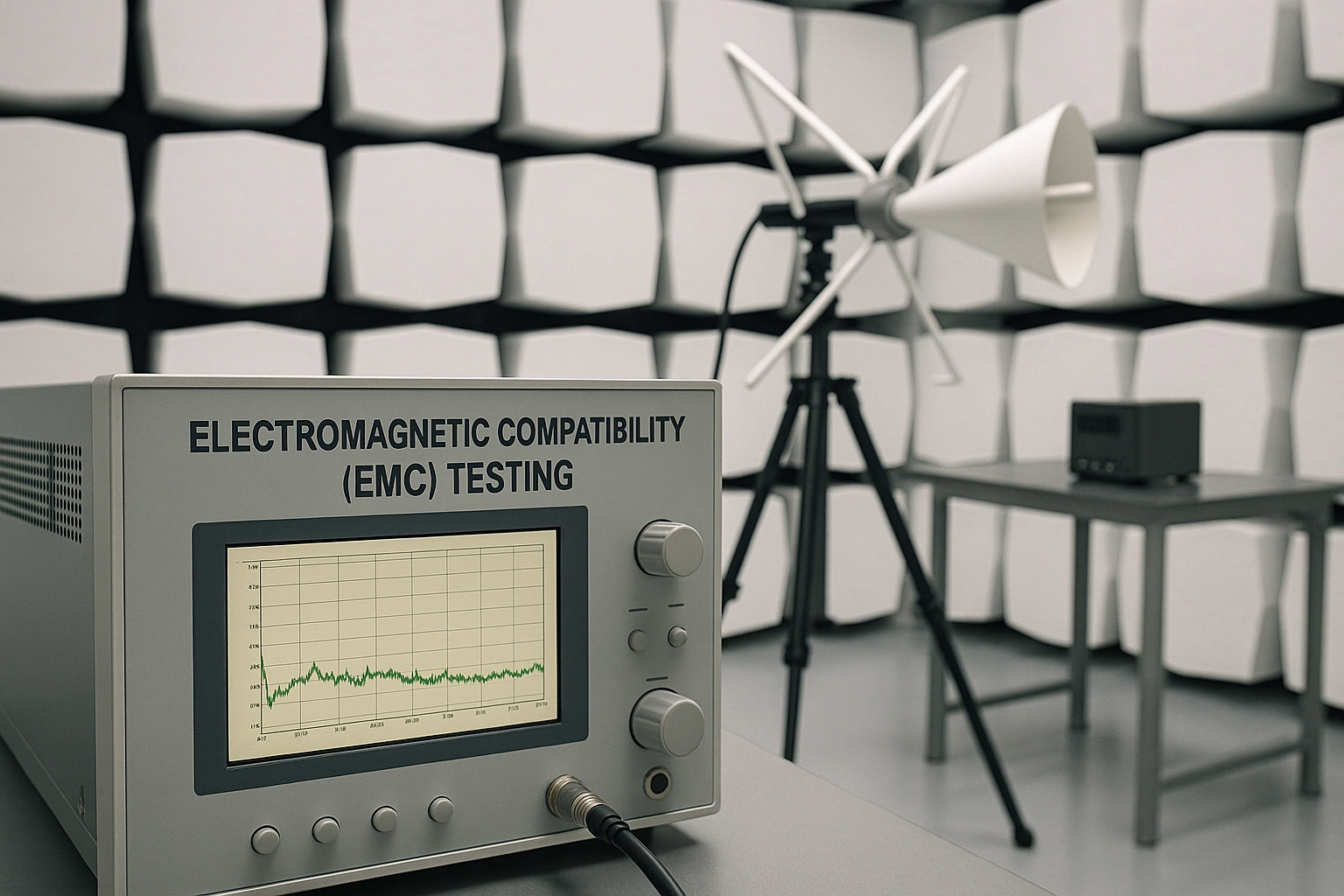ISO 21782 EMC Performance Testing for EV Charging Systems
The ISO 21782 standard is a critical benchmark for ensuring that electric vehicle (EV) charging systems meet stringent electromagnetic compatibility (EMC) requirements. This testing ensures the safety, reliability, and interoperability of charging infrastructure in diverse environments. EMC refers to the ability of equipment or systems to function properly in their electromagnetic environment without causing harmful interference to other devices.
Electromagnetic interference (EMI) can disrupt the performance of electronic devices, leading to malfunctions or even failures. In the context of EV charging infrastructure, EMI could compromise the integrity of charging processes, potentially endangering users and surrounding equipment. The ISO 21782 standard aims to mitigate these risks by specifying test procedures that assess a charger's susceptibility to electromagnetic emissions and its ability to radiate unwanted signals.
The testing process involves exposing the EV charging system to controlled electromagnetic fields across various frequency ranges. This helps identify any potential sources of interference or malfunctioning components. The standard also includes acceptance criteria that define permissible levels of interference and performance under specified conditions. Compliance with these standards ensures that EV charging systems are robust, safe, and compatible with existing infrastructure.
The testing procedure typically follows a series of steps: initial inspection, setup configuration, emission measurement, immunity evaluation, and reporting. Each step is designed to comprehensively evaluate the charger's performance in real-world conditions. For instance, the emission measurement phase assesses whether the charging system emits harmful electromagnetic signals that could interfere with other devices.
ISO 21782 testing is essential for several reasons. Firstly, it ensures compliance with international regulations and standards, which are vital for market entry and regulatory approval. Secondly, it enhances product reliability by identifying potential issues early in the development process. Lastly, it fosters a safer environment by minimizing interference that could lead to accidents or malfunctions.
Compliance with ISO 21782 not only protects users but also contributes to the broader goal of promoting sustainable and efficient transportation systems. By ensuring that EV charging infrastructure is robust against electromagnetic interference, this standard supports the growth of electric vehicle adoption and the transition to cleaner energy sources.
Why It Matters
The importance of ISO 21782 EMC performance testing for EV charging systems cannot be overstated. The increasing global focus on reducing carbon emissions through electric vehicle use necessitates robust and reliable infrastructure. EMC issues can have far-reaching implications, affecting not only the charging process but also the safety and functionality of other nearby electronic devices.
Non-compliance with these standards could result in significant financial penalties, loss of market share, and potential harm to public health and safety. By adhering to ISO 21782, manufacturers can ensure that their products meet the highest international standards, thereby enhancing consumer trust and confidence. This compliance also facilitates smoother regulatory processes, reducing delays and costs associated with non-compliance.
The testing process ensures that EV chargers are not only functional but also safe to use in a variety of environments. This is particularly important given the diverse range of conditions under which electric vehicles may be charged, from urban settings to rural areas. The standard’s focus on real-world scenarios prepares charging systems for potential challenges they might face in everyday use.
In summary, ISO 21782 EMC testing is crucial for maintaining high standards of performance and safety in EV charging infrastructure. It plays a pivotal role in fostering innovation while ensuring that products meet global regulatory requirements. By investing in this testing process, manufacturers can protect their reputations, enhance product reliability, and contribute to the broader goals of sustainable transportation.
Industry Applications
| Application Area | Description |
|---|---|
| Urban Charging Stations | Ensures compatibility with existing urban infrastructure and minimizes interference in densely populated areas. |
| Rural Charging Infrastructure | Strengthens performance under less favorable conditions, ensuring reliability in remote locations. |
| High-Power Chargers | Guarantees robustness and safety for high-demand charging stations, crucial for heavy electric vehicle use. |
| Mobile Charging Solutions | Safeguards mobile chargers against interference in diverse environments, enhancing user experience. |
| Public Transport Charging | Ensures safety and reliability for public transport systems, critical for mass transit networks. |
| Residential Chargers | Provides assurance of safe operation in residential settings, crucial for home use. |
The table above highlights the diverse applications of ISO 21782 EMC testing across various sectors. By addressing potential interference issues early on, this standard ensures that EV charging systems can operate safely and efficiently in a wide range of environments.
Quality and Reliability Assurance
The ISO 21782 EMC performance testing process is integral to ensuring the quality and reliability of EV charging systems. By subjecting chargers to rigorous electromagnetic compatibility tests, manufacturers can identify and rectify potential issues before they impact users or infrastructure.
During the testing phase, each component of the charger undergoes a comprehensive evaluation under controlled conditions that simulate real-world scenarios. This includes exposure to various levels of electromagnetic interference, ensuring that the system performs reliably in diverse environments. The acceptance criteria specify permissible limits for emissions and immunity, providing clear benchmarks for performance.
Compliance with ISO 21782 not only enhances product reliability but also contributes to broader quality assurance efforts. By adhering to these standards, manufacturers can demonstrate their commitment to producing high-quality products that meet international regulatory requirements. This is particularly important in the fast-evolving electric vehicle market, where consumer trust and satisfaction are paramount.
The testing process also fosters innovation by encouraging continuous improvement. Manufacturers can leverage the insights gained from EMC testing to develop more robust and efficient charging systems. This iterative approach ensures that EV chargers not only meet current standards but also anticipate future challenges in the rapidly advancing field of electric transportation.





